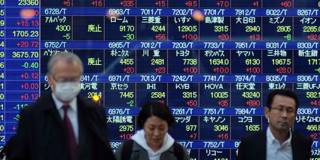In the 1980s and 1990s, people were acutely aware of inflationary risks, whereas economic actors today may be setting their expectations based on a different set of considerations. Given the powerful role of expectations in determining economic outcomes, this could be enough to alter the functioning of the business cycle.
TOKYO – The world has lost a great warrior for price stability. Paul Volcker led a determined campaign to restrain double-digit inflation as the US Federal Reserve’s chair in the 1980s, and exerted a powerful influence over US economic policy for decades to follow. Just a couple of years ago, when he was nearly 90, he grilled me on the inflationary potential of Abenomics, Japanese Prime Minister Shinzo Abe’s economic-reform strategy (I was an adviser on formulating the strategy). But despite Volcker’s praiseworthy achievements, it is worth considering the relevance of his approach in today’s low-inflation environment.

TOKYO – The world has lost a great warrior for price stability. Paul Volcker led a determined campaign to restrain double-digit inflation as the US Federal Reserve’s chair in the 1980s, and exerted a powerful influence over US economic policy for decades to follow. Just a couple of years ago, when he was nearly 90, he grilled me on the inflationary potential of Abenomics, Japanese Prime Minister Shinzo Abe’s economic-reform strategy (I was an adviser on formulating the strategy). But despite Volcker’s praiseworthy achievements, it is worth considering the relevance of his approach in today’s low-inflation environment.